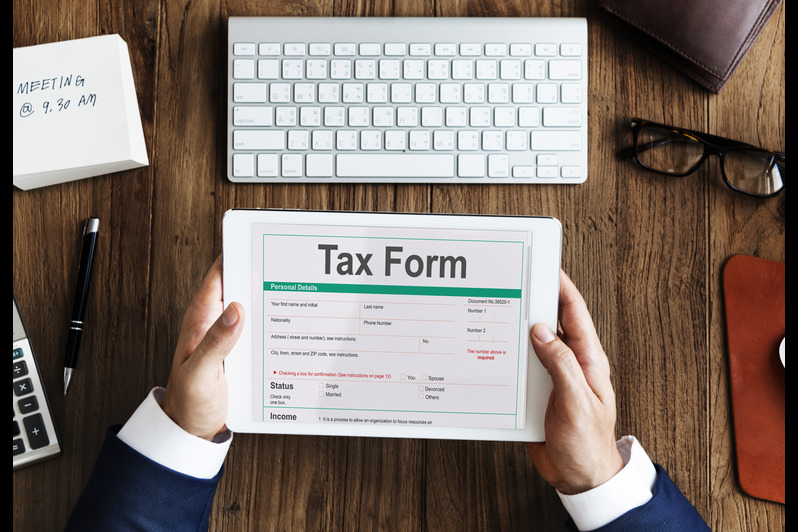Corporate Tax Registration in UAE
The Corporate Tax, commonly referred to as Corporate Tax, is a direct tax levied on the net income or profit generated by corporations and other entities during their business operations. It serves as a means for governments to generate revenue by taxing businesses' profits.
Objectives of Implementing Corporate Tax in the UAE
The implementation of Corporate Tax in the United Arab Emirates (UAE) through the Federal Decree-Law No. 47 of 2022 aims to achieve several key objectives:
- Establishing a Global Business and Investment Hub: By introducing Corporate Tax, the UAE aims to solidify its position as a leading global hub for business and investment. This move intends to attract domestic and foreign enterprises, fostering economic growth and development.
- Accelerating Development and Transformation: The UAE seeks to expedite its development and transformation by implementing Corporate Tax. This measure supports the nation's strategic objectives, paving the way for progress in various sectors and industries.
- Meeting International Tax Standards: The UAE is committed to upholding international standards for tax transparency and combating harmful tax practices. By implementing Corporate Tax, the country demonstrates its dedication to complying with global tax regulations and frameworks.

Scope of Corporate Tax in the UAE
The scope of Corporate Tax (CT) in the UAE encompasses various entities and activities:
- All businesses and individuals operating under a commercial license in the UAE are subject to Corporate Tax. This includes companies and individuals engaged in commercial activities within the country.
- Free zone businesses are also subject to Corporate Tax; however, the existing Corporate Tax incentives provided to free zone businesses that comply with regulatory requirements and solely operate within the free zones will continue to be honoured. It means that free zone businesses that do not conduct business outside the free zone and within the UAE's mainland will still enjoy the incentives.
- Foreign entities and individuals are liable for Corporate Tax if they engage in regular or ongoing trade or business activities within the UAE. It ensures that foreign entities conducting business operations in the country contribute to the tax system.
- Banking operations fall under the scope of CT in the UAE. It includes financial institutions engaged in banking activities such as accepting deposits, providing loans, and offering other financial services.

Exemptions from Corporate Tax
Certain individuals and entities are exempt from UAE Corporate Tax (CT) automatically or upon application. The exemptions include the following:
- UAE Federal and Emirate Governments, their departments, authorities, and other public institutions.
- Investment Funds that meet the prescribed criteria.
- Wholly Government-owned companies engaged in mandated activities, as listed in a Cabinet Decision.
- Businesses involved in extracting UAE natural resources and related non-extractive activities are subject to Emirate-level taxation after fulfilling specific conditions.
- Public Benefit Entities listed in a Cabinet Decision.
- Public or private pension or social security funds that satisfy certain conditions.
- UAE juridical persons entirely owned and controlled by the exempted entities mentioned above, following the fulfilment of specific conditions.

Business Tax Registration in the UAE
According to the Federal Decree Law 47, every taxable person in the UAE, including Free Zone Persons, must register for Corporate Tax and obtain a Registration Number.
- Exempted Persons are requested to register for Corporate Tax per the Federal Tax Authority's regulations.
- Taxable income up to AED375,000 is not subject to any Corporate Tax (0% rate).
- Taxable Persons must file Corporate Tax returns for a specific Tax Period within nine months from the end of that period.
- The deadline for filing Corporate Tax returns is also the payment deadline for all Corporate Taxes due for that Tax Period.
- In cases excluded as declared by the Minister, Taxable Persons must register for Corporate Tax with the Federal Tax Authority within a timeline specified by the authority.
- The Federal Tax Authority requires Taxable Persons or Independent Partnerships to register for Corporate Tax and obtain a unique Tax Registration Number.
- Corporate Tax is charged at a standard rate of 9% on taxable income above AED375,000.

Significance of Corporate Tax Registration in the UAE
Corporate tax registration in the UAE is essential for companies as it offers several advantages.
- By registering for corporate Tax, businesses can ensure compliance with tax laws and stay updated on any changes.
- It also helps identify and prevent malicious tax practices, promoting transparency and accountability.
- Furthermore, adhering to world-class tax standards through corporate tax registration showcases the commitment of businesses to ethical and responsible financial practices. It can enhance their reputation and build trust among stakeholders, including customers, partners, and investors.
- From a financial perspective, corporate tax registration minimizes after-tax revenue, benefiting shareholders. This impacts individuals with direct shareholdings and indirectly affects shareholders through private pensions or investment funds.
Overall, opting for corporate tax payments offers advantages to business owners compared to paying additional income tax individually. It allows for strategic tax planning and optimization, maximizing shareholder returns and supporting sustainable business growth.

Procedure for Corporate Tax Registration in the UAE
The procedure for corporate tax registration in the United Arab Emirates (UAE) may vary slightly depending on the specific emirate and the business activity you are engaged in. However, here is a general overview of the process:
- Determine your tax obligations: The first step is to determine whether your business is subject to corporate tax in the UAE.
- Obtain a tax registration number: If your business is liable for corporate tax, you need to obtain a tax registration number. This can be done by registering with the Federal Tax Authority (FTA) in the UAE. You will need to submit an application along with the necessary supporting documents.
- Gather required documents: The specific documents required may vary depending on the emirate and business activity, but generally, you will need to provide the following:
• Completed tax registration application form.
• Copy of the trade license.
• Memorandum of Association (MOA) or Articles of Association (AOA) of the company.
Read more
• Copy of the passport and Emirates ID of the authorized signatory.
• Proof of address for the company (e.g., tenancy contract).- Submit the application: Once you have gathered all the required documents, you should submit your application for tax registration to the relevant tax authority. You may need to apply online through the FTA's portal.
- Await approval and receive tax registration certificate: After submitting the application, you will need to wait for the tax authority to review your application and process it. If your application is approved, you will receive a tax registration certificate or notification of your tax registration number.
- Maintain proper records: Once registered for corporate tax, it is important to maintain proper accounting records and comply with all tax obligations, including filing tax returns and paying taxes on time.
It is recommended to seek professional assistance from tax consultant in Dubai to ensure compliance with the registration process and provide guidance throughout the application procedure.
Timeline for Corporate Tax Registration in the UAE
The UAE Corporate Tax (CT) regime will be effective for financial years starting on or after 1 June 2023.
Examples:- A business with a financial year starting on 1 July 2023 and ending on 30 June 2024 will be subject to UAE CT from 1 July 2023, as it falls within the first financial year that starts on or after 1 June 2023.
- A business with a financial year starting on 1 January 2023 and ending on 31 December 2023 will become subject to UAE CT from 1 January 2024, as it aligns with the first financial year that starts on or after 1 June 2023.

Documents Required for Corporate Tax Registration
To register for Corporate Tax in the UAE, businesses are required to provide the following documents:
- Copy of the valid Trade License: This document confirms the legal existence of the business and must not be expired.
- Passport copies of the owner/partners: Copies of the passports of the individuals who own the license should be provided. The passports must be valid.
- Emirates ID of the owner/partners: Copies of the Emirates ID (identification card) of the owner/partners should be submitted. The Emirates ID must be valid.
- Memorandum of Association (MOA) or Power of Attorney (POA): The MOA is a legal document that outlines the company's structure and activities. At the same time, the POA grants authority to an individual to act on behalf of the company. One of these documents should be provided.
- Contact details of the concerned person: The name, mobile number, and email address of the person responsible for the tax registration process should be provided.
- Company contact details: The Company’s registered office's address and PO Box number should be mentioned.
- Corporate Tax Period: The desired tax period for the company should be indicated.

How may Tax Consultant in Dubai assist you?
Are you looking for expert guidance and seamless assistance in Dubai's corporate tax registration process? Look no further! Our team of experienced tax consultant in Dubai is here to simplify your journey to corporate tax compliance.
Navigating the intricacies of corporate tax registration can be a daunting task. Still, with our dedicated consultants, you can rest assured that your registration process will be smooth and hassle-free. We have in-depth knowledge of the UAE tax regulations and keep ourselves updated with the latest changes and requirements. Our tax consultant in Dubai will carefully guide you through:
- The entire registration process,
- Assisting with document preparation,
- Application submission, and
- Compliance with the Federal Tax Authority's guidelines.
By engaging our services, you benefit from our expertise, saving valuable time and resources while ensuring the accurate and timely completion of all necessary procedures. Trust our team of tax consultant in Dubai to provide comprehensive support, allowing you to focus on your core business operations. Don't let the complexities of corporate tax registration overwhelm you. Contact us today and let our expert tax consultant in Dubai streamline the process, ensuring your business remains compliant and well-positioned in the UAE's tax landscape.